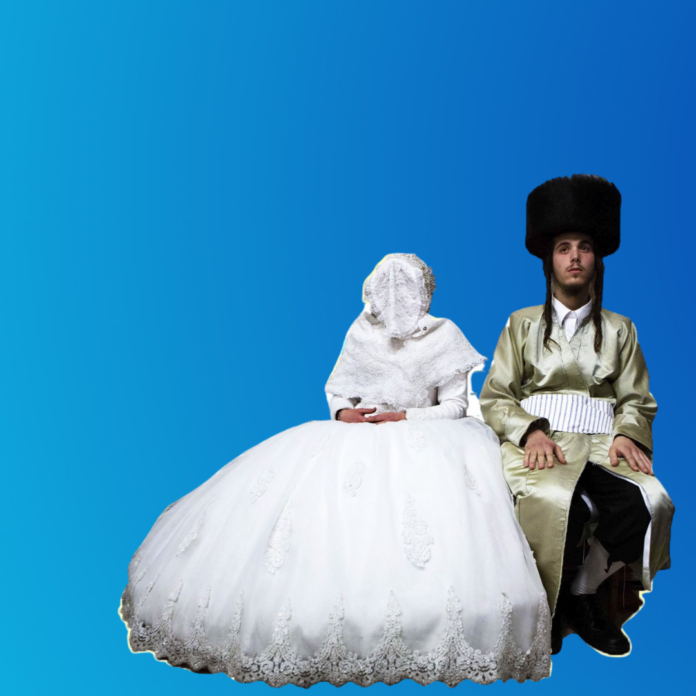
Dear Rabbi
The number of boys and girls born, are about the same, and I assume that this has always been so. In Genesis we find that our ancestors Abraham, Isaac and Jacob had several wives, but no woman had more than one husband. How then is it that the men could then find enough women to marry?
Henry
Dear Henry
Good question! You may be right that the average of men and women on the planet are the same – men presently account for 50.25% of the population, but that does not translate to an even balance in every individual country or race. Hence in the United States there are approximately 4.8 million more females than males while in China males outnumber females by about 36 million. On that basis there would not have been a problem assuming there are more Jewish females than males back then. Interestingly enough that still seems to be the case today where arguably it is suggested there are 8-10 females for every male in the shidduch market. Hence, the term that has become known as the shidduch crisis.
Mr. and Mrs.
Dear Rabbi
Why is it that on the wedding invitations I receive I always find on the Hebrew side, parents of the bride or groom, “Yechiel Greenpepper and his wife,” as if she were his chattel, and never “Belinda Greenpepper and her husband.” Better still, why not just list Yechiel and Belinda Greenpepper as one would expect?
Dana
Dear Dana
Hey you got invited to the Greenpepper wedding, I didn’t. You take it up with them. I suspect Belinda was OK with it or the invitations would never have gone out. More to the point traditionally that’s just the way it was always done in the Hebrew though I am sure in the English you would have found both names listed. It has nothing to do with chattel and more to do with modesty
I once spoke at a Bar Mitzvah where I committed the mortal sin of referring to both parents of the Bar Mitzvah by name. Apparently I was only supposed to refer to him by name – David and his wife. In other words she and I are not supposed to be on a first name basis. I’ve said it once and I’ll say it again: everyone is entitled to their individual customs, behavioural patterns and points of view, and if that’s the way it works in some circles then so be it. You can always choose to go to the wedding and say, Mazal Tov Yechiel and Mazal Tov to you wife. Then again, you will likely be on the other side of the mechitza and may not be allowed to speak to her altogether. Different strokes for different folks!
Can Intermarriage save The World?
Dear Rabbi
Can you please give me some advice as to what answer I can give to my mother in law who says she is happy that her two sons have “married out?” She says this fits with her philosophy that there is too much intolerance between religions and inter-marriage will lead to better harmony and understanding and will result in less conflict.
Abe
Dear Abe
If she thinks for a second that because her daughters-in-law are not Jewish this will then put paid to Anti Semitism then give her a quick lesson on the Holocaust. Moreover, if we were to take your mother in law’s reasoning to its logical conclusion then frankly, as we are the smallest of the religions, we ought to all consider converting to Christianity or Islam. That would then really ensure true harmony in the world and safeguard our future.
Trust me when I tell you she is hurting and says these things more to pacify her own conscience. It may help her to fall asleep at night but it won’t stop the nightmares when she sees an entire Jewish lineage erased further down the line.
A Convert with a Jewish Mother?
Dear Rabbi
I recently attended a study class in Mishna and learnt in the Tractate Bikurim about converts, where the Mishna makes a distinction between regular converts and converts with mothers of Jewish decent. If the mother is Jewish, how can the child be a convert?
Joe
Dear Joe
The Mishna is discussing the prayers recited by those whose parents may not be Jewish, particularly with reference to using the term “our forefathers” (as in the opening of the Amidah). The question arises in regard to one who is a proper convert i.e. his mother is not Jewish and he himself therefore is a full convert. How can he refer to the forefathers Abraham, Isaac and Jacob as “our forefathers?”
The question would also arise for one whose mother is Jewish though his father is not. To use the term, “our forefathers” would still be problematic. The Mishna however doe not refer to the latter as a convert. I hope that clarifies. Study on!









